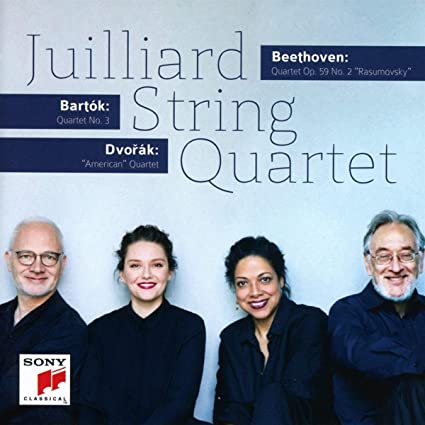
COLLECTIONS

Ludwig van Beethoven: String Quartet in E Minor, Op. 59
Béla Bartók: String Quartet No. 3, Sz. 87
Antonin Dvořák: String Quartet in F Major, Op. 96 "American"
I've said this before many times and I will say it again. What makes musicians great musicians is when they can also be magicians and make themselves disappear, or in other words recede from view so that all you hear is the music, and that is especially true of solo instrumentalists and/or chamber music ensembles. Besides opera and ballet productions of course, in which the visual aspects like costumes, art direction, stage settings, etc ... as well as the music itself, all play a critical part in the overall effect, I prefer not to watch a video production of a pianist playing a Prokofiev Piano Sonata or a chamber ensemble playing a Beethoven String Quartet, simply because their stage (or dare I say staged) gesticulations and mannerisms actually detract from the music. I even dislike audio only recordings in which you can sense or perceive that there are four musicians sitting at microphones, working hard at their individual parts and struggling to stay together. It doesn't make for a very musical experience. When a composer writes a string quartet, it's the notes and their interactions that matter, not the persons holding the instruments.
It's obvious, and not only based on this recording but previous ones as well, that regardless of their members at any given time, the Juilliard String Quartet which celebrates the 75th anniversary of its founding with this release, are magicians as well as great musicians. Their playing here, as a group, is precisely uniform and yet the individuality of each part is striking. Nuances are highly shaded and gradual, accents are incisive, expressive rubato is uncannily well balanced, and even the character of their sound changes based on the music at hand, as in the Béla Bartók for example. Or in the Lento movement of the Dvořák, even the instruments supporting the leading melody have an expressive character all their own. And within the final movement of the Beethoven, new first violin Areta Zhulla's playing simply bounces off the page. Everything sounds intuitively natural. Music first and foremost like the composers intended.
Jean-Yves Duperron - April 2021